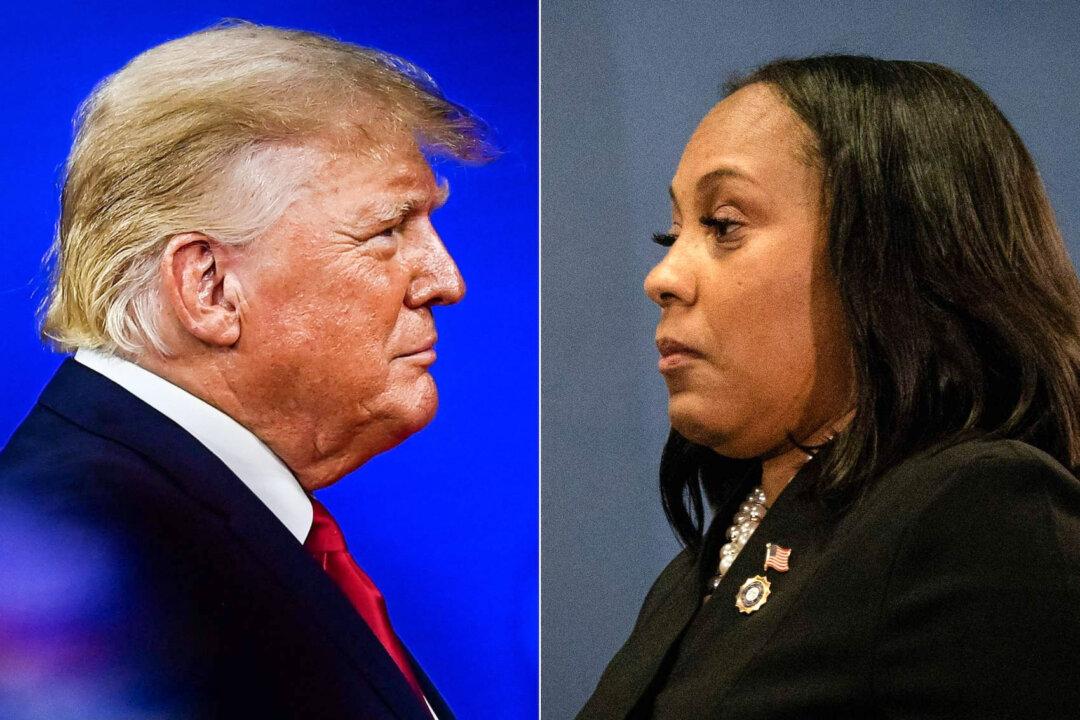Former President Donald Trump on Thursday notified a Georgia court that he will appeal a judge’s decision in March that allowed Fulton County District Attorney Fani Willis to remain on a sprawling election-related case against him.
In court papers filed with the Fulton County Superior Court, the former president said he will appeal Judge Scott McAfee’s ruling that stipulated Ms. Willis could remain in the case if her former special prosecutor steps down, which he did. That ruling was issued after Trump co-defendant Michael Roman January accused Ms. Willis and former special prosecutor Nathan Wade of being in a clandestine relationship that the two later confirmed.





